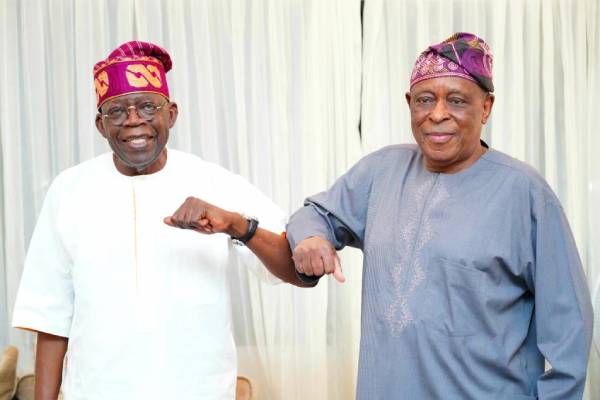
Former Governor of Ogun State, Olusegun Osoba, has revealed that President Bola Tinubu’s administration met an empty treasury upon assuming office.
According to Osoba, the situation compelled the Tinubu-led administration to embark on a borrowing spree as a stopgap measure.
Osoba made the remarks during an appearance on Arise Television, emphasizing the efforts made by Tinubu’s government to navigate the prevailing economic hardships in the country.
He assured Nigerians that while borrowing became necessary in the interim, the administration would review and adjust its strategies after the initial phase.
“When the treasury was empty and the last administration was borrowing to pay salaries, the whole place was empty. What else can you do other than in the meantime, borrowing to fill the gap?
“That does not mean that the culture of borrowing will go on forever. You met an empty treasury. There was nowhere to turn other than to still engage in a bit of borrowing. After the first year in office, the whole thing will be reviewed and we will see.
“Talking of borrowing, when your pocket is empty, you have to go to your bank to shore you up for some time. It depends on how you manage that situation.
“I have explained to you that we are lucky, but by June 1, the whole system was set up to totally collapse. I’m telling you if he (Tinubu) didn’t go the way the government had to go (things would have collapsed),” Osoba stated.
Despite acknowledging the current hardship, Osoba conveyed optimism for 2024, expecting improvements in the country’s economic conditions under Tinubu’s leadership.
Regarding the recent increase in the 2024 budget, Osoba asserted that the key lay in its practical implementation, highlighting the need for reasonable utilization of allocated funds.
Responding to inquiries about Tinubu’s absence from Plateau State amidst security crises, Osoba emphasized the president’s commitment to addressing the root causes rather than token appearances.
Osoba defended Tinubu’s policy decisions, acknowledging their impact on the rich and the poor and attributing them to the imperative of fostering economic growth.
He criticized the wasteful spending and extravagance among state governments, urging sub-national entities to curb excesses and enhance fiscal responsibility to alleviate financial strains.
